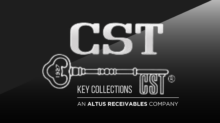Here are a few practical steps you can take to minimize risk, and increase your chance for recovery, before an account becomes delinquent.
When dealing with a corporation, obtain a personal guaranty* (click here to view a sample personal guaranty) whenever possible. This can greatly enhance your chances for recovery. The corporation may go out of business, or become defunct, but we can still pursue any individuals who have signed a personal guaranty.
If the individual who signs the personal guaranty is married, ask the spouse to sign as well. We see many cases where the party who signs the personal guaranty has few or no assets in his/her name. The assets are all in the name of the spouse. This is usually done by design, so that individuals or companies can get credit and still satisfy your credit requirements. You may insist upon a personal guaranty as a pre-requisite to issuing credit. The personal guaranty given under these circumstances is essentially worthless, but this is not obvious until you are forced to file suit. You then discover that you cannot collect from this individual because all of the assets are in the name of the spouse who did not sign the personal guaranty. If possible, ask the spouse to sign, before credit is issued.
Insist upon a credit application*. If filled out correctly, this should clearly identify your customer. It should include useful information such as credit and bank references, home addresses and phone numbers of the principals, legal status, etc. It will establish written credit terms which are advantageous to you, such as default provisions, rate of interest, and returned goods policy. By signing the credit application, they have agreed to your terms.
If your customer is an individual or a partnership of individuals, it is very helpful to obtain their social security number(s). The same applies to personal guarantors. Many of your customers will likely have common names, such as Mike Smith, or Susan Jones. The social security number enables us to make sure we are contacting the right party — the exact person with whom you did business. Without a social security number, it is more difficult to track the individual if the business closes.
Keep good records! This cannot be over-emphasized. Notations or any memos regarding telephone contacts with your customer should be meticulously maintained, as should copies of all correspondence with the customer confirming any telephone conversations, payment commitments or other acknowledgements of the debt. If a dispute is ever raised by your customer after we are employed, we ask them to outline the particulars of the dispute in writing. We can then match their information against your notes and correspondence. In this way, we can determine whether there is a bona fide dispute or if your customer is just making excuses to avoid payment.
Have your customer submit either a written purchase order on their letterhead, or something similar in writing, to confirm that they actually ordered the product. This can include important details such as the name and title of the person who places the order, delivery terms, price, quantities, shipping terms and all other obligations and conditions. It’s funny how many of your customers will claim they have never heard of you, never did business with you and certainly never ordered anything from you, AFTER we become involved.
If an account is becoming past due, or you think it may become a bad debt, get proof of delivery on your shipments before the records are too old, and/or unobtainable. Many debtors, especially on older accounts, will try to get out of paying by telling us that they never received the goods. If you have proof of delivery, we can refute this defense.
The above is intended to be informational only, and does not constitute legal advice. We suggest you consult with legal counsel if a specific opinion is desired.
*The sample forms we provide (links above) are not state specific. These forms have been reviewed by an attorney for content, but they are intended to be an example only. If you have specific requirements, you should seek the advice of a local attorney in the preparation of your forms for each purpose.
